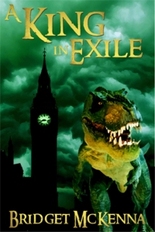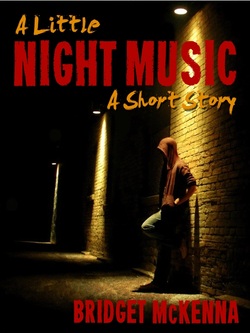 "A Little Night Music," by Bridget McKenna
"A Little Night Music," by Bridget McKenna Scroll down to the end of this article to see the original Dell Harris illustration from Amazing Stories magazine! And now, back to the original post:
Today I published a new short story ebook on Amazon, “A Little Night Music.” Well, it’s new to Amazon, but it was first published nearly twenty years ago in Amazing Stories magazine. The ebook version has undergone a pass by my editor and some minor rewriting, and I think it stands up pretty well to anything I’d write today. I’m rather proud of it.
All stories have stories behind them; this has more of a story than most. If it wasn't for love of what it said to me, it would never have been written. What follows here is the afterword to the book. You can read it here even if you don't shell out 99c. But of course you're welcome to do that, too.
I got the idea for “A Little Night Music” in early 1986, when a chance remark by my daughter, linking music and drugs in a humorous way, caused me to say “Yeah...why not?” and the idea for the story was born, though humor was not to be one of the ingredients. I didn’t finish it until sometime in 1991.
I mentioned in my afterward to “Hole in the Wall” that I’d had a handful of recalcitrant story ideas on the back burner when I went to the first Writers of the Future workshop in Taos, New Mexico in May of ‘86. This was one of them. I worked on the plot and storyline a bit for one of the exercises our teachers assigned us for our out-of-class hours, or that portion of them when we weren’t gathering in one of our motel rooms or some Taos eatery discussing writing, politics, writing, how to fix the world, and writing.
When I got home from Taos, I started working on the story. I sat in coffee shops in the mornings before going to work in a bookstore, and wrote in longhand on yellow legal tablets. Old school. This was before laptops, by the way, but after coffee. I really loved it; in those days that hour and a half before work defined me in important ways. I wrote in longhand, did lots of research, and wrote careful, crowded pages of notes. Then I put it all away; I no longer knew where it was going, and I didn’t feel equal to the task of finding out. The story felt too ambitious for me.
A few years later I decided I was ready to pick the story up again, and went looking for the notes and partial draft. I had moved twice since then, and the pieces of my story were nowhere to be found. In fact, I’ve never found them. But I wanted to finish it, and I knew I was a better writer than when I’d played around with it the first time. So I started over with what I knew of the characters and what I was trying to say with the story, and built it up again, paragraph by paragraph. Eventually I found out where it was going, and it wasn’t easy taking it there.
I’ve always been interested in stories that don’t have heroes, exactly, but do have believable point-of-view characters. I’m fascinated by the question “When your back’s to the wall, which is stronger—love or fear?” And I love me some Mozart.
So I set out to discover who these men were who were going to tackle that thematic question for themselves, with their own lives. I put them into a near-future Los Angeles—or perhaps I should say I waited to find out where they were, and that was where I found them—and let them talk, and argue, and drink beers, and do business together. And I added a menacing presence whose interest in them was going to threaten everything that mattered.
If I’m doing it right, I’m always surprised by things that happen in my stories. The ones I like best have always had some moment I didn’t see coming until I saw the words. This happened to me over and over while I wrote “A Little Night Music.” While I was re-keying the story for this publication, I found myself surprised all over again by things that happened that I hadn’t remembered, despite having written them.
Some people consider it painfully cliché to say that characters have a life of their own and make their own decisions, but the best ones actually do, because we know them better than we think we do. They have a reality in parts of our minds we don’t often connect with, but when we allow that connection to open, they will sometimes stick their heads up and tell us things we didn’t expect. Early in my first draft, I tried to write that Vince Raynor had stayed home from work owing to the effects of his addiction. I didn’t even get the words down before Vince popped up in my mind and said “No. I go to work. I always go to work.” I conceded to his superior knowledge of himself. Much later in the story, when he’s walking closer to the edge, he does stop going to work. And at that point it means something because he’d never done it before.
No, I don’t believe disembodied characters actually write my stories, but not surprisingly given that I’m a hypnotist, I give a lot of credence to my unconscious mind. It’s a wonderful writing partner.
When I was done with the story, I sent it to Kim Mohan, probably because he had recently bought another of mine, “The Bard Effect.” Here’s what he had to say about it when it appeared in the July 1992 issue of Amazing Stories:
“Music and drugs have a connection that goes way back. In “A Little Night Music,” Bridget McKenna takes that connection and tightens it down until the words come to mean basically the same thing....”
So thanks to Kim for believing in the story, and to all the past and future readers for reading it.
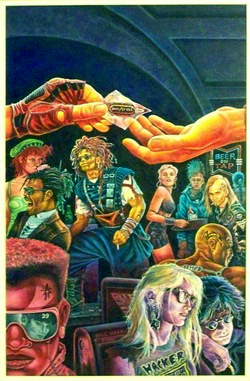 A Little Night Music - Illustration Copyright (C) Dell Harris, 1992
A Little Night Music - Illustration Copyright (C) Dell Harris, 1992 A Little Night Music Original Illustration
This is the Dell Harris artwork for "A Little Night Music" when it appeared in Amazing Stories in 1992. Thanks to my family, Dell's sales agent Angela Lowry, and Dell himself, I now own the original.
Is that cool, or what?
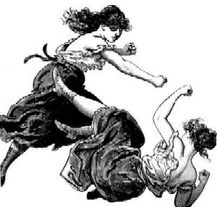
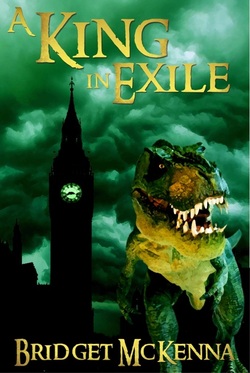
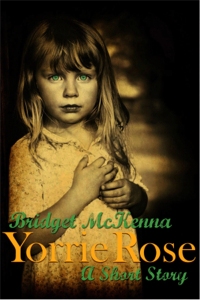
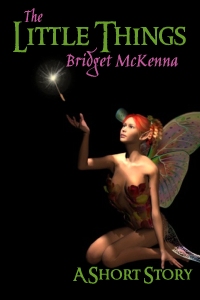
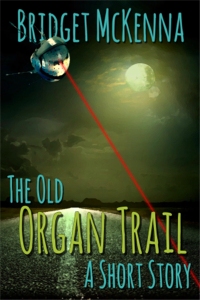
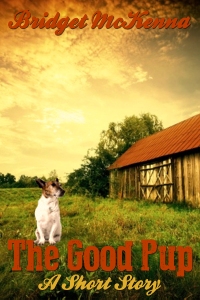
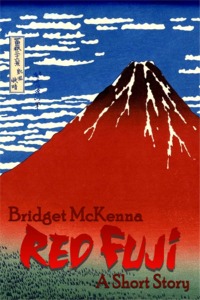
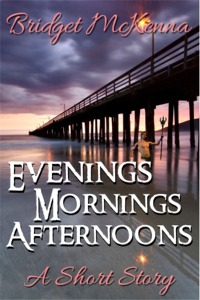
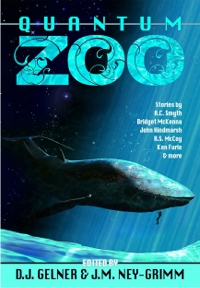


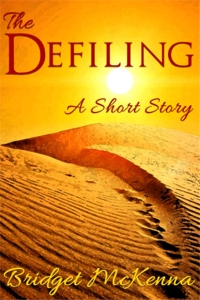
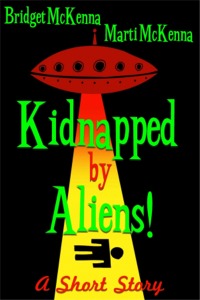
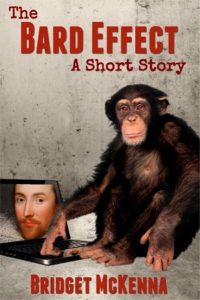
 RSS Feed
RSS Feed


